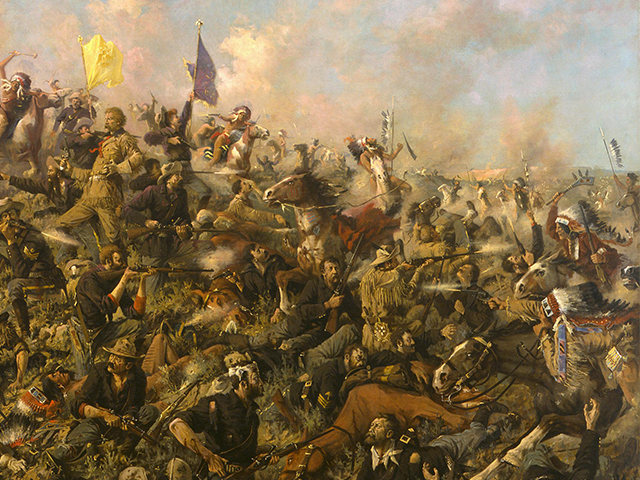During my recent conversation with historian William Hogeland, we discussed the ways that American history is inextricably linked with the history of racial oppression and imperialism.
It’s a fact that, as we celebrate our national independence on the Fourth of July, we would be well advised not to forget.
“What do we do about the fact that — something that everybody knows, that everyone will stipulate to if you bring it up — that the country was formed largely on the basis of racial slavery and expropriation of indigenous nations’ land, when land was the natural resource,” Hogeland explained during our interview. “I mean, everyone knows that. Everyone admits it on some level.”
He later added, “I’m not bringing it up in order to constantly beat that dead horse. The question is, how dead is that horse? Maybe it’s not dead at all.”
Indeed, the mere fact that Donald Trump is president indicates that racism remains alive and well in America’s political discourse. This is a man whose short-lived presidential bid in the 2012 cycle was based around a racist conspiracy theory intended to delegitimize the first African-American president, and who kicked off his 2016 bid with a speech that specifically and falsely suggested that undocumented Mexican immigrants were likely to be rapists or murderers.
In fact, survey data suggests that racial animosity was a more powerful motivating factor for Trump voters than authoritarian ideological tendencies.
Of course racism in American history did not begin with Trump’s presidency. That said, the 2016 presidential election was a turning point, one in which Americans were presented with a candidate who clearly played to the darkest impulses in our national character and did not universally reject him.
That fact, like the aspects of American history that Hogeland discussed, are matters to reflect on even as we celebrate the immense hope and promise of the American dream.

